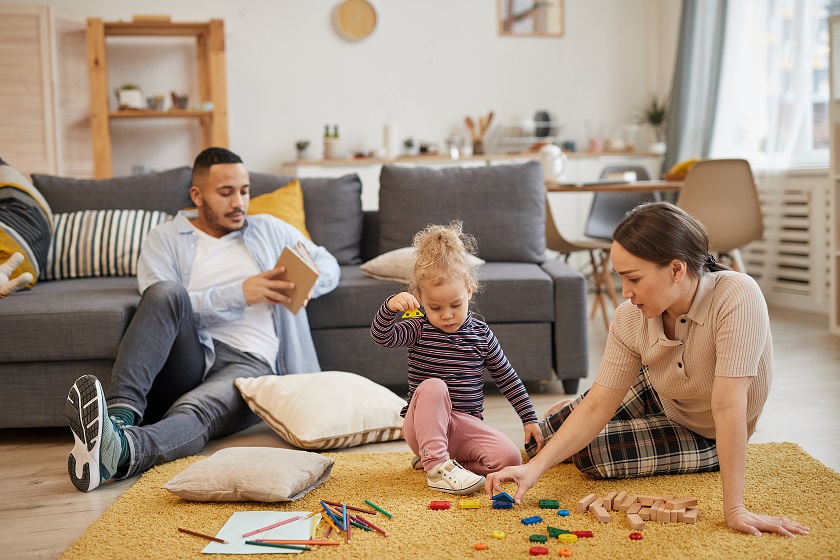When children cannot be cared for by a birth parent, Local Authorities and the Courts have the very difficult task of deciding the child’s future care arrangements. The Children Act 1989 tasks Local Authorities with attempting to ensure, wherever possible, that children are brought up in their own families and in doing so, every effort should be made to identify and assess the suitability of family members and friends, who are known to a child.
There are generally two options for permanent placement of a child with a family member or friend; to become a Connected carer or a Special Guardian, and there are significant differences in terms of roles and responsibilities for each of them. We have already explored the role of the Connected Person in an earlier blog however, from the perspective of the applicant, it is important to fully understand the implications for caring for a child as a Connected Person.
Who is a Connected Person?
A ‘connected person’ (also known as a kinship or family/friends carer) can be anyone with whom the child has a pre-existing relationship.
This can include but is not limited to:-
- A relative:
- Grandparent
- Auntie or uncle
- Brother or sister
- Half blood relatives, or by marriage / civil partnership:
- Step-parent
- Step-sibling
- A friend
- Person with prior connection:
- Teacher
- Child-minder
- Youth worker
Roles and responsibilities
Connected Persons are currently assessed in exactly the same way as a mainstream Local Authority foster carer and are held to the same standards and rigorous approval criteria. There is significant debate currently about the appropriateness of this given the difference in terms of the child’s relationship with applicants. In practice, this means that carers do not hold parental responsibility (PR) for the child, who would be made the subject of a Care Order. The Local Authority would therefore acquire PR, which they would share with the child’s parents and all aspects of the child’s care would be monitored and overseen by the Local Authority.
Carers effectively become Local Authority foster carers. They are supervised and regulated until the child reaches their eighteenth birthday. There are restrictions placed on them in terms of their day-to-day care of the child, with requirements that they undertake to follow strict safer caring policies, which many grandparents are concerned will alter the relationship they have always enjoyed. There are however, benefits to this option. Connected Carers are paid to care for the child and the emphasis on responsibility for the Local Authority ensures that children who have specific needs, or who remain at risk, are safeguarded and supported throughout their minority. Carers have the support of professionals, access to training and resources that they may otherwise struggle to access and for children who have experienced trauma, this can be crucial to their recovery.
The second option is for the Court to issue a Special Guardianship Order. The Adoption and Children Act 2002 introduced Special Guardianship and Special Guardianship Orders.
It is possible to apply for a Special Guardianship Order if:
- you are a Local Authority foster carer with whom the child has lived for a period of one year directly before the application; or
- the child has lived with you for three of the last five years (and the child has not ceased living with you more than 3 months before the application); or
- you are the guardian of the child; or
- the child is in Local Authority care and the Local Authority consents to you making an application; or
- you have a Child Arrangements Order or a Residence Order in respect of the child ; or
- you are a relative of the child and the child has resided with you for at least one year immediately pre-dating an application; or
- you have permission from the court to make the application
A Special Guardianship Order is a permanent option, intended to offer greater security to a child than a Care Order and less draconian than Adoption. Any Care Order ceases at the time the order is made and parental responsibility is vested in the Special Guardian and gives them exclusion over all others with PR and allows for unrestricted day-to-day decisions about the child’s care without statutory oversight. It allows the child to maintain links with a birth parent and for children who were looked after at the time the order was made, there is a requirement for Local Authorities to offer an assessment for Special Guardianship Support Services.
What can Advanced CCA Assess?
At Advanced CCA, we offer assessment for both Connected Persons and Special Guardianship and are working closely with Local Authorities to ensure that our assessments meet their individual requirements. We are developing bespoke packages, agreed in liaison with individual authorities to ensure minimal delay in proceedings and a smooth approval process. When we are asked to prepare a Connected Person Assessment, we will automatically also consider the merits of Special Guardianship at no additional cost to the Local Authority because we are committed to leaving no stone unturned and achieving the best outcome for children and their families. We have developed our own resources for direct work with children to ensure the voice of subject and applicants’ children are heard and assessment is undertaken by our team of experienced Independent Social Workers both nationally and internationally, some of whom have a focused background in fostering.
To make a referral for a Connected Persons Assessment, a Special Guardianship Order Assessment or a combined assessment, to discuss the development of a bespoke package for your Local Authority or for any other service, get in touch today.



